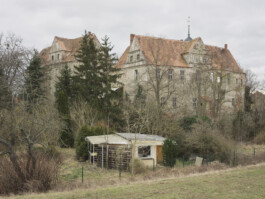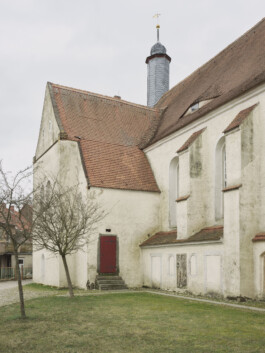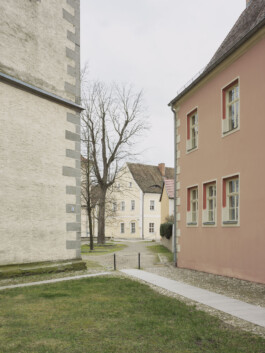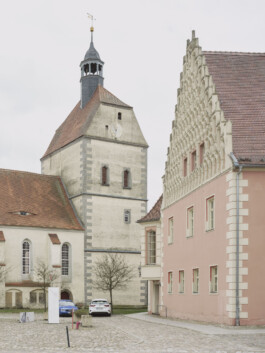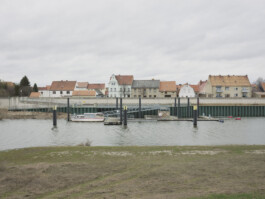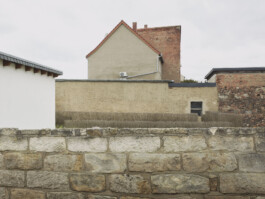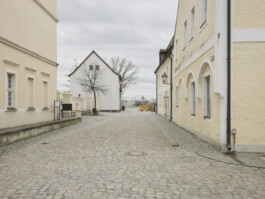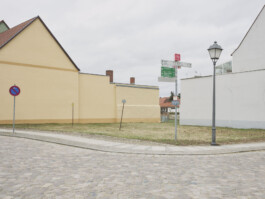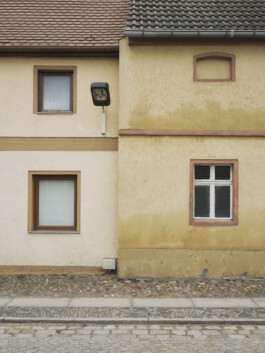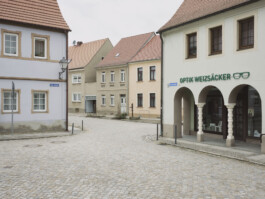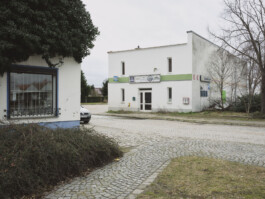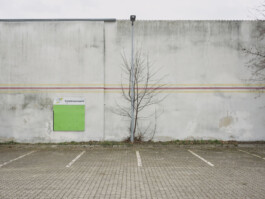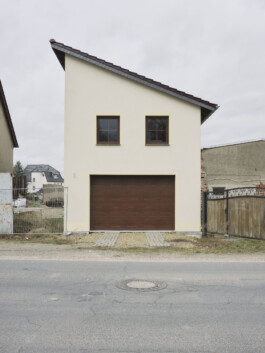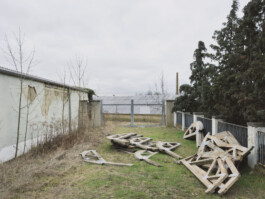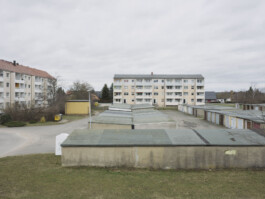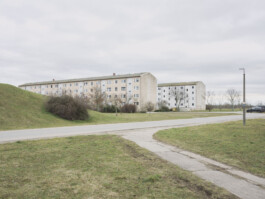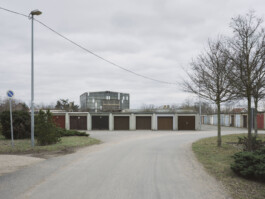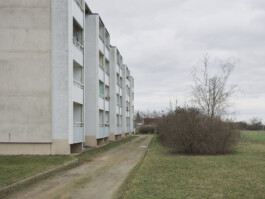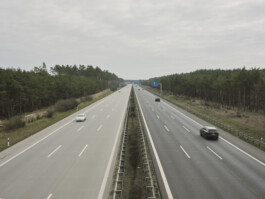_
Mühlberg/Elbe, 2024
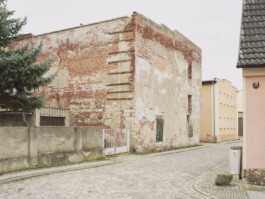
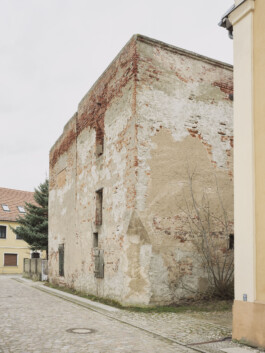
Mühlberg, a small town on the Elbe in south-western Brandenburg, embodies a profound history of continuity and change. Its architecture, which is marked by several distinctive residential structures from the 18th and 19th centuries as well as a historic monastery and castle, is a tangible testimony to its past. Yet, the surrounding landscape is also characterized by gravel pits, flooded open-cast mining lakes, wind turbines and solar fields. The town thus symbolizes a complex, often paradoxical transformation process in which the discrete and simultaneous changes to structural and environmental paradigms reflect a broader dialogue between preservation and progress, tradition and innovation.
